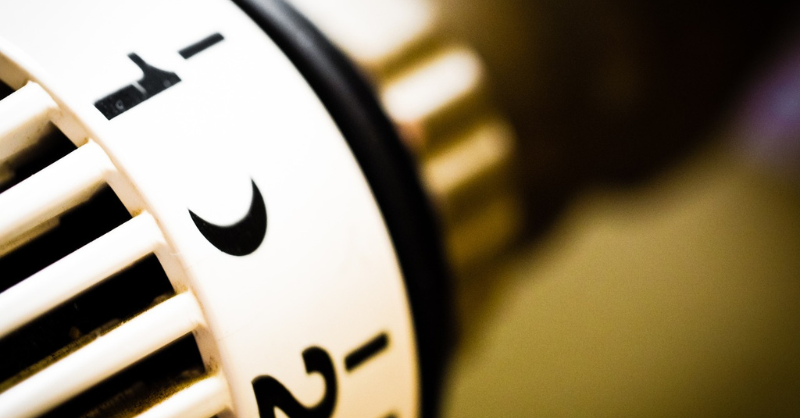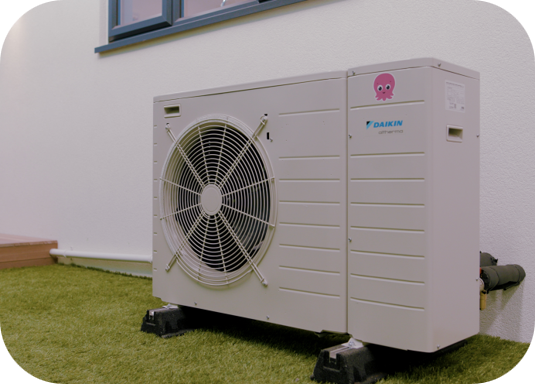
Insulation, heat pumps and half truths
We frequently hear that before we even think about rolling heat pumps at scale we need to sort out home insulation first. This is not true.
We frequently hear that while heat pumps are a 'good idea' they don't work in cold climates (not true - look at how popular they are in the Nordics), and that before we even think about rolling them out at scale we need to sort out home insulation first. The implication is that without a high level of insulation, heat pumps are a 'waste of money'.
This second message has some appeal, but sadly it's also not true.
If the aim is to reduce carbon emissions as quickly as possible with a limited budget, then adopting heat pumps typically provides greater carbon savings per pound spent than insulation measures.
And while we are covering half truths - apparently insulating our homes to a higher standard doesn't result in lower heating bills. We seem to end up using the same amount of gas as before, at least in the UK. So maybe we shouldn't think about insulation as being a strong decarbonisation lever, at least on it's own.
What will really move the dial is encouraging homeowners to fully decarbonise (ie electrify), so some insulation but really accelerate the heat pump roll out at the same time. It's not insulate first, then push heat pumps - 'its everything, all at once' (apologies to the producers of the movie of the same name).
This is a What Caught Our Eye story - highlighting reports, research and commentary at the interface of finance and sustainability. Things we think you should be reading, and pointing out the less obvious implications. All from a finance perspective.
It's free to become a member ... just click on the link at the bottom of this blog or the subscribe button. Members get a summary of our weekly posts, including What Caught Our Eye and Sunday Brunch, delivered straight to your inbox. Never miss another blog post !
How much insulation do homes really need?
It is often claimed that the UK’s housing stock needs to be much better insulated before heat pumps can be installed. This is largely untrue. If the aim is to reduce carbon emissions as quickly as possible with a limited budget, then adopting heat pumps typically provides greater carbon savings per pound spent than insulation measures. Yes better insulation helps, but it's not a prerequisite.

Heat pumps can be installed and work efficiently in less well insulated homes. The key factors affecting a heat pump’s efficiency are system design and adequately sized radiators.
While insulation plays an important role in reducing heat demand, and can in some cases make heat pumps operate more efficiently, it is not the key factor in heat pump efficiency. Instead, having a well-designed heating system, with correctly sized heat emitters (radiators in the UK) which enable a lower flow temperature, is the most important factor behind a heat pump’s efficiency.
OK, so having got that fallacy out of the way, what about the impact of insulation on our home heating bills. Surely having a better insulated house should reduce our gas bills?
The answer to this question should be 'obviously yes'. After all we know that insulating homes is generally a good thing – it saves energy, makes homes healthier and more comfortable, and it can ease pressure on the electricity grid.
But what if I told you that research suggests that insulating the lofts and cavity walls of existing UK housing stock only reduces gas consumption for the first year or two, with all energy savings vanishing by the fourth year after a retrofit.
And no, this is not some lobbyist funded 'research' seeking to prove that we should just give up and learn to live with a fossil fuel powered future. It's proper research from the Cambridge Centre for Environment, Energy and Natural Resource Governance.

The researchers analysed gas consumption patterns of more than 55,000 dwellings over twelve years (2005-2017), and found that cavity wall insulation led to an average 7% drop in gas use during the first year. This shrank to 2.7% in the second, and by the fourth year, any energy savings were negligible.
They think that the answer to this apparent contradiction is that there may be a significant 'rebound effect': any savings through energy efficiency get cancelled out by a steady increase in energy use. And one possible major factor is that because the fitting of insulation can be such a big job, it's often done at the same time as other major work, such as adding an extension to the house. And the larger floor area requires more heating.
So, better insulation doesn't seem to reduce gas usage in the longer term, and we don't really need high levels of insulation to make heat pumps become a viable alternative.
If we really want to decarbonise our home heating, just go for more heat pumps.
But, we also need to recognise that real barriers exist to rolling out heat pumps. One of the big ones is what is known as the spark gap. This basically measures how much more expensive electricity is than gas. When electricity is cheaper, we sell more heat pumps. No real surprise there.

And we also need other levers to be pulled. As we highlighted in a blog back in March 2023 ...
Whilst UK government climate policy highlights heat pumps as important, resources 'on the ground' do not match that ambition. A lack of appropriately qualified installers is a key concern as well as appropriate economic incentives for consumers on a lifetime cost basis, particularly with installation. Planning is a bottle neck too which should be reassessed holistically.


Please read: important legal stuff.





